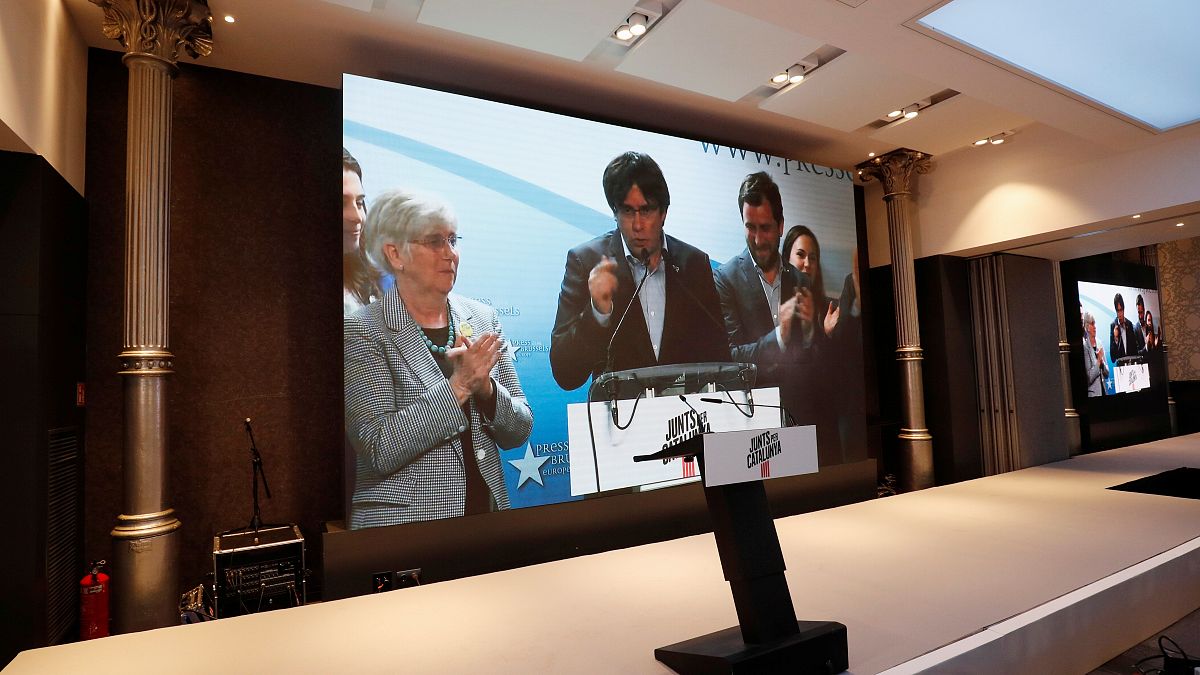Euronews published an article by Aleix Sarri under the punchy title “The Curious Case of Carles Puigdemont and the Suppression of Democracy”, containing a number of inaccuracies on the controversy surrounding the recent election of Carles Puigdemont and Toni Comín to the European Parliament.
A response to the article by Aleix Sarri published on Euronews.
On 14th June 2019, Euronews published an article by Aleix Sarri under the punchy title “The Curious Case of Carles Puigdemont and the Suppression of Democracy”, containing a number of inaccuracies on the controversy surrounding the recent election of Carles Puigdemont and Toni Comín to the European Parliament.
Mr Puigdemont, as is well known, has been accused in Spain of committing serious crimes in relation to acts deriving from his manifest will to unilaterally revoke the Spanish Constitution in the current territory of Catalonia. To avoid being brought before the Spanish courts, Mr Puigdemont chose to leave Spain at the end of October 2017, and set himself up in Brussels.
In contrast to Mr Sarri's claims, Carles Puigdemont has not been "acquitted" in Germany, for the simple reason that he has never been tried in that country. It is true that a court in Schleswig-Holstein refused Spain's request to extradite Mr Puigdemont for the crime of rebellion. However, it did admit his extradition for embezzlement of public funds. The German court, entering into a questionable analysis of the facts, concluded that the level of violence did not meet the necessary criteria under German criminal law in order to consider that a crime of rebellion had been committed. Nevertheless, it should also be highlighted that the same German court emphatically rejected the idea that Mr Puigdemont is the victim of alleged "political persecution".
Mr Sarri also strays from the truth by affirming that the President of the European Parliament has ordered that Carles Puigdemont not be recognized as an MEP. There is no evidence of any such order having been given.
It is a different thing entirely that the European Parliament can only recognize as Members those candidates whose names have been submitted to them by the competent national authority (in the case of Spain, the Central Electoral Commission, an independent body,), once the requirements set forth in the law of each Member State have been met.
In fact, as it turns out, there is no such thing as “European electoral law”, a small detail that Mr Sarri appears to have overlooked. All procedural issues concerning the election of MEPs prior to their assuming their full status as such at the first plenary session of the European Parliament, are governed exclusively by the national laws of each Member State. And Spanish law is clear on this point: the elected Members of Parliament must collect their certificate of election and swear or pledge allegiance to the Spanish Constitution in Madrid, before the Central Electoral Commission.
Messrs Puigdemont and Comín are indisputably aware that were they to travel to Spain they would be brought before the Spanish Courts, and they have opted not to take the risk of a trial. It is possible—as Mr Sarri suggests—that not all European countries require that their citizens take any kind of oath or pledge before assuming office. Such regulations are, without question, every bit as respectable as those of Spain, which were consolidated many years before the acts for which Mr Puigdemont has been charged took place.
Mr Sarri also cites the case of Oriol Junqueras, who—in contrast to Messrs Puigdemont and Comín—decided not to flee from justice and is under trial by the Supreme Court. This case is currently pending a ruling. On 14 June, this Court rejected Mr Junqueras’ request to be released from pre-trial detention to take office as an MEP. The seven judges of the Supreme Court Chamber consider that, were Mr Junqueras to take possession of his seat in the European Parliament, this would jeopardize the correct judicial conclusion of the case. This decision has already been appealed by the interested party, and a ruling is expected in the near future. As the Court itself has affirmed, this decision will not prevent Mr Junqueras from taking possession of his seat in the European Parliament if he is absolved. Once again, what we are discussing here is a strictly judicial decision. In fact, the State Legal Service, which is representing the Spanish Government in the trial, was in favour of releasing Mr Junqueras from pre-trial detention for the aforementioned purpose.
Mr Sarri implies that the Spanish State is violating the political rights of Messrs Puigdemont, Comín, and Junqueras in retaliation for their political ideas. However, Mr Sarri is perfectly aware of the fact that in the Spanish Parliament — just as in the European Parliament — there are Members who defend exactly the same ideas and have had no problems whatsoever. In Spain, people are not tried for their ideas, but for their acts.
Gabriel Colomé is a political science professor at the Universidad Autónoma de Barcelona.
____________
Are you a recognised expert in your field? At Euronews, we believe all views matter. Contact us at view@euronews.com to send pitches or submissions and be part of the conversation.
